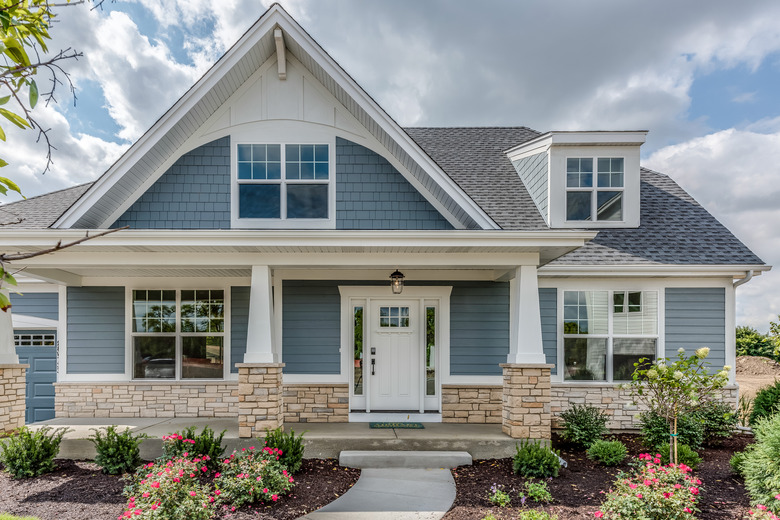9 Things To Consider Before You Move To A Small Town
Between the rising cost of living and the challenges brought on by the pandemic, more and more urban dwellers are moving to small towns and suburbs. "Many people who previously never had an option to work from home are now working from home and no longer have to worry about needing to live close to their office in the big city," Victoria Sechrist, Certified Financial Trainer at The Financial Gym says. "Additionally, many of the 'perks' of big city living have changed — conveniences such as mass transit, fine dining, and cultural events aren't happening right now."
Before you pack your bags and leave the city life behind for good, read ahead to hear what factors real estate agents, financial advisors, and small-town experts say you should take into consideration about rural life.
1. You’ll save money.
1. You'll save money.
One of the biggest benefits of moving to a small town is that the cost of living is usually lower than in big cities. "This can entail everything from saving on gas and groceries to the cost of paying a babysitter and dog walker," says Nikki Stokes, Managing Director and Financial Advisor at Northwestern Mutual. "Additionally, it's likely that you'll be able to save on mortgage and property taxes, as taxes tend to be lower in less populated areas."
2. Your money goes further.
2. Your money
goes further.
Another big draw of moving to a small town is that you can get a lot more living space for a lot less money. "The possibility of more square footage, as well as better amenities, such as a private backyard or patio, means you might get a lot more bang for your buck by moving to a smaller city," explains Eric Kredatus, a realtor at Strand Hill.
3. They’re safer.
3. They're safer.
Whether you have children or live alone, Ashley Iocco, a realtor at Strand Hill, says small towns typically offer more peace of mind than big cities. "An individual's safety is often one of the first things on their minds," she explains. "I believe more people are moving from big cities to small towns with fewer crowds and lower crime rates to find a feeling of security."
4. They provide a sense of community.
4. They provide a sense of community.
One of the most unique benefits of living in a small town is that you are no longer as anonymous as you were in a large city. "Neighbors become friends and you get to know the locals and befriend them, too," says agent Mihal Gartenberg of Warburg Realty. Along with more neighborly friendships, Deb Brown, cofounder of SaveYour.Town says close-knit communities often offer more opportunities to get involved. "Whether it's a local theater production or helping out with a town-wide fundraiser, it's easy to participate in community events in smaller cities," she explains.
5. You’ll need a car.
5. You'll need a car.
While small town life means less congestion and traffic, it often requires that you own a vehicle. "While you might save money on rent and groceries in a smaller town, you should take into account the monthly costs of having a car," says Jenny Harp, Certified Financial Trainer at The Financial Gym. "Between car payments, car insurance, gas, and auto repair and maintenance costs, you may not be saving as much money as you think."
6. You will have more access to nature (or at least to a backyard).
6. You will
have more access to nature (or at least to a backyard).
According to Becky McCray of Small Biz Survival, rural towns often provide more access to nature than overpopulated big cities, which is more important than ever while being cooped up at home during the pandemic. "In a small town, it's much easier to meet the goal of being only a five-minute walk from nature," she explains. "Small towns put you closer to nature."
7. The pace is slower.
7. The pace is
slower.
If you're feeling burned out by the hustle and bustle of big city life, Iocco says moving to a small town can help. "Small town life is calmer, slower, and more laidback than urban living," she explains. However, if you've grown accustomed to the fast pace of city life, then a small town might not be the best fit for you. "Things close down at a much earlier time in smaller cities," Gartenberg says.
8. More living space often means more costs and work.
8. More living
space often means more costs and work.
Just because you might have a lower monthly mortgage payment when you move to a small town doesn't mean you won't spend money on other home-related issues. "There are many more costs in homeownership that people don't anticipate because they just focus on the monthly payment," Sechrist says. "You need to factor in maintenance, lawn care, security/alarm systems, and furnishing a larger area of space."
9. You might not be working from home forever.
9. You might
not be working from home forever.
Job opportunities can be scarce in small towns, so before you move to one, Sechrist says it's important to find out whether or not you will still have the opportunity to work remotely after the pandemic ends. "If your remote work option is temporary, then it may not be wise to settle down in a small town and then eventually have to commute back to a big city."
